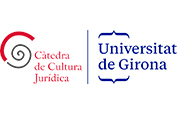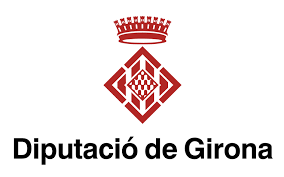Ethical Guidelines
Quaestio facti: International Journal on Evidential Reasoning adheres to the guidelines set by EASE (European Association of Science Editors) for the management, edition, review and publication of scientific results in journals from different fields of knowledge and to the principles of transparency and good practice in academic publications of COPE (Committee on Publication Ethics).
The following commitments and procedures are defined in accordance with those guidelines.
Ethical commitment
- Submit papers which have not been previously published and which are not subject to evaluation by other journals until the evaluation process by this journal has been completed.
- Accept the rules of publication, review and evaluation of the journal. Submission of papers for evaluation requires a blind copy with the omission of any data that may be identified by the reviewers regarding its authorship.
- Immediately notify the journal of any situation that may compromise an ethical publication, such as, errors in the work submitted, possible conflicts of interest on the author's part, omission of authors, fraudulent declaration of affiliation, unauthorized use of images or other elements, unreferenced quotes or plagiarism, and actively collaborate with publishers to address these errors.
An author is considered to be anyone who meets the following three criteria: 1) Has contributed significantly and substantially to the structuring, content, data collection, design, and/or interpretation of the study; 2) Has written or critically analyzed the article during its review and 3) Approves the final version of the manuscript and is responsible for all aspects of the work.
The order of authorship must be agreed upon by all listed members and should follow a logic from greatest to least contribution. If contributions are equal, the list should be arranged alphabetically.
If the authors deem it appropriate, they are encouraged to include an authorship statement clarifying the contributions made by each author.
3. The Directors, members of the Redaction committee, members of the Editorial committee and the Advisory Board undertake to respect the impartiality and confidentiality of the work submitted, its authors and reviewers, so that anonymity preserves the integrity of the entire evaluation process. To this end, they will ensure the selection of the most qualified and specialist reviewers in the field to issue a critical and expert assessment of the work. Furthermore, as far as possible, they will avoid all types of conflicts of interest and will strictly comply with the evaluation, editing and publication schedule required by the periodicity of the journal.
Procedure for unethical behaviour
Given the suspicion and/or knowledge that bad practice or unethical behaviour have been perpetuated in either published works or those that are in the process of being revised or edited, publishers will undertake appropriate measures to identify such irregularities and resolve them. To do this, the editors:
- will guarantee a thorough pre-selection before submitting the articles for review and publication.
- will ask for explanations directly from the authors when a possible infraction is detected, providing the necessary evidence, and they will ask for their collaboration to remedy it.
- will work with professional institutions to investigate the ethics of the publications should an investigation be deemed necessary because the explanations are considered insufficient.
If bad practices are detected during the editing process and the author corrects them, the process will continue. If the author does not accept the proposals or the explanations are considered insufficient, the article will be rejected.
If these unethical behaviours are discovered after the publication of the article, an editorial note will be published, the article will be withdrawn and/or legal action will be taken, depending on the severity.
The Directors, members of the Redaction Committee, members of the Editorial Board and the Advisory Board urge the submission of complaints and appeals regarding possible misconduct in articles published in Quaestio facti, as well as of the journal itself, and undertake to respond to them.
Any communication may be sent to the e-mail of the journal (quaestiofacti@udg.edu) or through the “Contact” section of the website.
Anti-plagiarism policy
As a specific anti-plagiarism measure, the journal's editorial committee will submit all texts received to Ouriginal, a plagiarism detection program.
It will be considered plagiarism whenever phrases, fragments of works (published either in physical or digital format), fragments of works or thought structures that are not authored by the person who submits the work are used without the corresponding citation acknowledging the authorship. If the reproduction is literal, in addition, the citation of the source will only be considered legitimate if the reproduced sentences are enclosed in guillemets. Also, whenever texts are reproduced with slight changes, using synonymous words or mere translations of the original without the citation of the source or the use of guillemets it will be deemed plagiarism.
Plagiarism is considered serious unethical behaviour and, as such, all articles suspected of plagiarism will be rejected or removed immediately if they have been published. The journal's table of content will include the articles removed for plagiarism indicating so.
Use of Artificial Intelligence
Artificial Intelligence (AI) tools cannot, under any circumstances, be listed or considered as part of the authorship of an article. They cannot make reasoned and critical decisions, which is why they are considered incapable of bearing any responsibility for the submitted manuscripts under review, failing to meet one of the essential criteria that define an author.
If the author uses AI tools for writing, generating images or graphic elements, collecting data, or any part of the manuscript creation process, this must be disclosed in the text, specifying which tool was used, for what purpose, and how. The use of AI tools does not exempt the author, under any circumstances, from responsibility for the content, including that generated by AI.
The editorial team does not use AI in the selection of reviewers and does not allow reviewers to use these tools to make decisions regarding the publication of the assigned manuscript.








